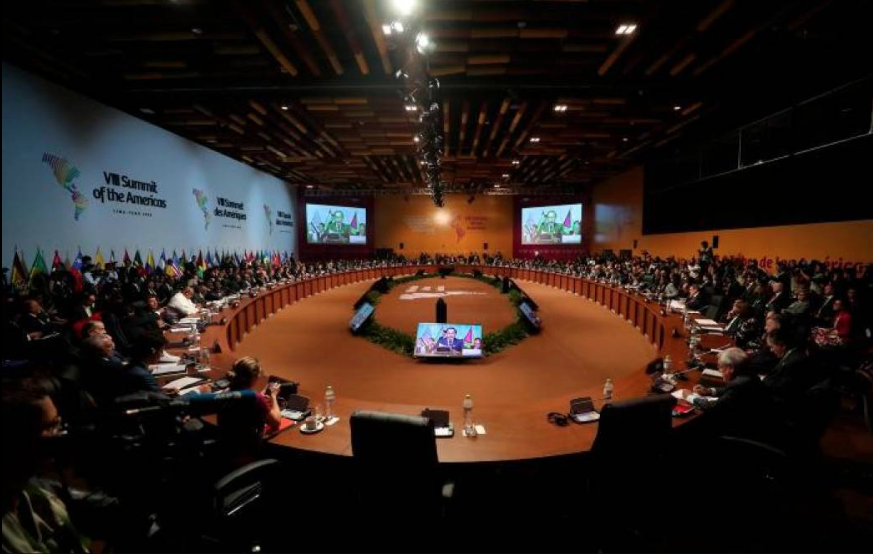The Summit of the Americas to be held in June in Los Angeles will be an important venue to strengthen a growth and development agenda for the countries of North America, the Northern Triangle, and Latin America in general. There, the countries of the region will be able to present the importance of the U.S. government and in particular the Congress and its Republican senators recognizing the social and economic relevance of immigration reform, the impact of remittances to reduce irregular immigration, the need to release the four billion dollars of the Development Plan for Central America and the increase of temporary work visas. For the U.S., the Summit will be a space to promote greater and more effective co-responsibility for migration and to strengthen governability and governance for development with shared commitments by the countries of the region.
The Summit is a political space to promote effective Latin American lobbying, but Latin American countries should take a more pragmatic position. While the U.S. government has had some reservations with some countries in the region, President Biden’s administration has recently made some pragmatic decisions. On the one hand, it has reduced restrictions on travel and remittances to Cuba and meetings with Cuban officials for better migration management. On the other hand, it has allowed negotiations of the main U.S. oil company (Chevron) in Venezuela to negotiate possible activities, based on the relevance of the oil reserves in the country.
In this context, Latin America’s priority at the Summit should be to convince the U.S. government to promote policies to reduce bilateral asymmetries. This would be achieved by reducing social inequalities based on a social agenda: control of corruption; investments in the energy sector that promotes clean energy, with public interest and greater energy self-sufficiency; greater incentives for micro, small and medium enterprises with a perspective of equality and value, entrepreneurship policies and social innovation for young people and insist on immigration reform with an impact on labor and social inclusion.
But beyond the Summit of the Americas, there are other important initiatives underway between the United States and Latin American countries, such as the High-Level Economic Dialogue, which articulates economic competitiveness, security, and mobility of people. Within the framework of the Biden administration, a new security and development agenda has been proposed that impacts the northern and southern borders of Mexico and the Northern Triangle countries: El Salvador, Guatemala, and El Salvador.
This agenda seeks to promote solutions to various problems such as security, health, border crossings, migration, development, trade, sustainable energy security, and climate change. The challenge of this initiative is to jointly manage these proposals to promote a bilateral and regional relationship where competitiveness, growth, and respect for the sovereignty of each country predominate.
A second relevant framework in this line was the meeting between Presidents Joseph Biden with the Prime Minister of Canada, Justin Trudeau, and the President of Mexico, Andrés Manuel López Obrador, at the North American Leaders’ Summit on November 18, 2021. This meeting was the framework for strengthening integration and charting a new path in line with complex global challenges.
There, the Mexican government reiterated the importance of migratory flows and mobility to the United States, in the context of the need for labor in accordance with labor integration and the expected growth of the U.S. economy. The three presidents highlighted the complexity of the increase in irregular migration in the hemisphere – nearly three million irregular migrants between September 2020 and April 2022 – the largest migratory flow in the last 20 years.
All these initiatives are spaces where the countries of the region and especially the Central American countries and Mexico can pressure the Biden administration to demand better conditions in their relationship with the northern power. Central American and Mexican emigration will not diminish in the medium term. Wage differences are enormous, and the demand for irregular labor in the U.S. will continue to increase due to the growth of the economy, in the context of the post-pandemic reactivation.
Translated from Spanish by Janaína Ruviaro da Silva











